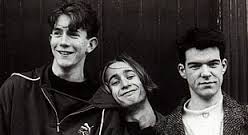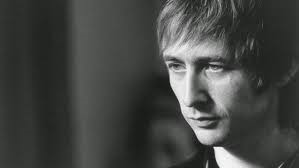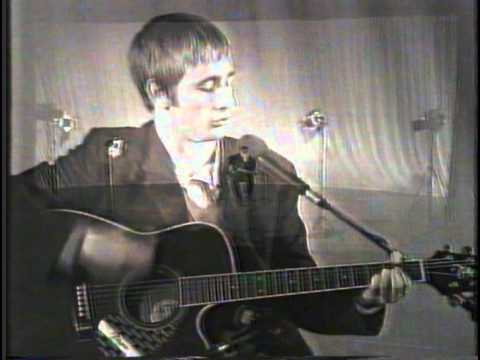As I recently re-watched The Divine Comedy’s terrific 2004 show, recorded live at London’s Palladium Theatre, my mind was cast way back to another far more intimate but no less powerful encounter with Neil Hannon.
I had been aware of The Divine Comedy from the get go. My friend, Keith Cullen, had issued their 1990 mini-album, ‘Fanfare For The Comic Muse’, on his fledgling Setanta imprint and, as part of that affair, had moved the then three-piece from Enniskillen in County Fermanagh to a flat in North London. That apartment was owned by John O’Neill of The Undertones who had produced the seven-tracker and who was also recording for Setanta under the band name, Rare.
Written by Neil Hannon, who sang and played all of the guitars, the record also featured John McCullagh and Kevin Traynor on bass and drums respectively. The Divine Comedy had first been recommended to Setanta by Louise Trehy, a Dublin musician who later recorded for 4AD as half of the band, Swallow .

‘Fanfare For The Comic Muse’ captures a clever young songwriter with no little ambition, borrowing from a standard frame of indie reference, most notably the British shoe-gaze scene led by Ride. The Divine Comedy were thinking big – the title of the record being a case in point – and notwithstanding the band’s circumstances in their hovel in Tottenham – Neil had set the bar high.
Initially at least, the band struggled to generate any real interest in London and went largely un-noticed by the music press who, instead, rowed in behind their Setanta label-mates, Dublin’s Into Paradise. To provide the band with more heft, The Divine Comedy briefly expanded it’s ranks by adding a friend of Neil’s, John Allen, as lead vocalist, allowing the song-writer more scope to drive the band on from behind his guitar. I saw them give a workmanlike performance at The Borderline in London at this time, opening for Toasted Heretic who, by then, were commanding plenty of interest themselves, particularly from the inkies.
But The Divine Comedy set was all very shapeless and dour and, while the excellent ‘Europop’ E.P. [1992] was certainly a meatier and more focussed affair, the band imploded in North London shortly afterwards. Neil opted to go it alone and de-camped back to his parents’ house in County Fermanagh.
It was during the late Autumn of 1992 that Setanta started to receive the first flashes of what was to subsequently become the popular Divine Comedy sound. Neil had been busy back in Northern Ireland and had delivered us a suite of pretty ace but crudely formed songs on tape, all of which he’d written, played and produced himself on a small portable studio. Even at this stage, there was a real magic about some of that material.
Most of those songs would, of course, provide the spine to, ‘Liberation’, the aptly-titled, first full Divine Comedy album, released by Setanta in August, 1993, and the sound of a songwriter finally finding his voice after a false start. Recorded with the engineer Darren Allison, who also contributed drums, the record revealed a serious change in mood and tone. The original rhythm section had been replaced by a number of string players and Neil had swapped his indie-fringe for a tighter cut and a smart collar-and-tie finish. The whole thing had been recorded on a typical Setanta shoestring.
Immediately prior to the release of ‘Liberation’, I too had changed direction and was now busy back in Cork, working on a national television series I’d devised. ‘No Disco’ was pitched as a late-night alternative music show for RTÉ Two, the first thrust of a central RTÉ strategy to produce more content from outside of Dublin. Unbeknownst to me at the time, I’d actually based the series on the founding principles of Setanta Records : no money, no facilities, no embarrassment and plenty of neck. The origins and early days of the ‘No Disco’ series have never really been properly documented and I’ll return to this in a more substantial future post.
‘No Disco’ was cheap and cheerful television, a simple cut-and-paste of mildly left-field music videos with the odd interview [some of them very odd] and pulled together by the weekly proselytising of it’s presenter, Dónal Dineen. The first episode aired in September, 1993, to the sound of huge indifference and to the astonishment of those who had worked on it. But as soon as we found our feet and established ourselves in the margins of the RTÉ Two schedules, we’d started to get cockier and more ambitious.
To that end, we’d occasionally wander out from our bunkered existence at the studios in Father Mathew Street to tape, randomly enough, live acoustic performances from certain acts. The criteria were simple enough: the music had to sit easily with Dónal and myself and the bands had to be prepared to deal with some of the vagaries of our existence as a television series by stealth, operating with minimal amounts of everything. It was rough and it was ready and we were based in Cork.
Keith Cullen had mailed me a pre-release of ‘Liberation’ on cassette and I couldn’t believe how good it was. Neither could I believe how far Neil had developed – and how quickly ? – since he’d left London. Yes, his songs had always had grand designs but he’d now re-drawn his foundations and the sound was far more rounded, mature and compelling as a result. Consequently, The Divine Comedy became an obvious early target for ‘No Disco’ and we were anxious to feature them as part of the brainwash.
In the absence of any video material – Setanta Records was run from a squat in Camberwell and barely had enough money to record its bands – we decided to tape a two-song Divine Comedy acoustic performance instead. And Neil’s gorgeous renditions of ‘Three Sisters’ and ‘Lucy’ – both among the many stellar songs on ‘Liberation’ – featured regularly on the ‘No Disco’ playlists throughout.
That session took us about two hours to record and involved around six hours work in all. It was shot on the spartan, curtained stage at The Firkin Crane building on the Northside of Cork city, a beautiful dance studio and theatre in the shadow of Shandon, the iconic landmark. As well as the two songs, we also knocked out a long-ish interview with Neil in which all of us were effusive in our praise for ‘Liberation’.
Tony McCarthy was the cameraman who captured the performance on standard Betacam tape, Paul O’Flynn was the sound recordist and, on this occasion, we’d hired the added help of Tony Healy, a local musician who provided the heavy duty sound equipment we used on all of these sessions.
Because we were working on the cheap, I’d also hired an acoustic guitar locally so that Neil didn’t incur additional flight charges. He played this guitar for the first time as we were setting up in the venue.
We’d put him up in my family’s house in Blackpool the previous night, where he charmed my mother, who loves her music and who remains a staunch supporter of Neil’s to this day. So whenever I hear The Divine Comedy’s ‘Mother Dear’ [from the ‘Victory For The Comic Muse’ album], I think that the song could easily be about my own mother’s absolute regard for her young guest all of those years previously. It isn’t, but hey …
‘No Disco’ never had the budget to employ a production runner, to order taxis or to deal with the day-to-day practicalities of running sessions like these. And so I’d routinely be on hand to lug sound gear into venues, do a run for lunchtime sandwiches and, when required, bum lifts off of my father, who regularly spun musicians around Cork city and got them back on the train home. It was, of course, no way to run a television programme but then, in our heads at least, ’No Disco’ wasn’t a television programme at all. It was, to borrow popular current vernacular, a weekly Ted Talk: an address of genuine inspiration to the nation.
On the day of the Firkin Crane session, Neil performed both songs at least three times each. Once we had captured the master sound recording – and once Neil was happy with what he had heard – we did a couple of other takes on the song from alternative angles. When we got into the edit with Antóin O’Callaghan [no relation] we decided, where possible, to keep the performances on one single shot. This was out of character with much of what was going on more widely in music television at the time. Indeed, it’s very rare these days to see any sort of pans, zooms and tilts on location-based television output. But again, in the hands of a skilled operator, the old ways can often be the only ways. And we went for it.
The only real concession we made in the edit was in removing all of the colour from the clip, for no other reason than we wanted those sessions to have a different look and feel to the rest of the programme. Among some of the other acoustic room performances we shot during the first year of the programme were a handful of ace tracks by The Harvest Ministers recorded in The Triskel Arts Centre, a cracking set by The Revenants in The CAT Club and a pretty special two-song show by Edwyn Collins, put to tape upstairs in The Old Oak, during which he performed ‘Low Expectations’ and ‘Gorgeous George’ from the Setanta album of the same name.
The Divine Comedy remained one of the staples of the ‘No Disco’ play-lists for many years thereafter. Over the following twelve months we also cobbled together a pretty woeful time-lapse video for ‘Tonight We Fly’ [from the band’s 1994 album, ‘Promenade’] salvaged from footage of a sun-down that one of Neil’s friends had sent us from London. And, one memorable Sunday afternoon, the directors Eamonn Crudden and Eamonn Doyle hired an old-school bicycle from a shop in Dillon’s Cross and shot a handful of Super 8 reels of my late friend, Philip Kennedy, as he peddled around Cork. The personal highlight of that shoot occurred when we were asked to leave the grounds of The Cork Cricket Club by some local toff after we’d arrived, un-announced, up the avenue, on foot and on wheels, wielding a funny looking camera.
We used that footage to accompany ‘The Summerhouse’, another track from ‘Promenade’, which myself and Donal really liked and which, again, we just felt needed to be heard.
It was the pair of us, I guess, just taking care of business.


Wow that’s a blast from the past! I was a teenager when No Disco started out and I used to tape videos from the program (for obsessive teenage re-watching afterwards). That acoustic session introduced me to the Divine Comedy who became my absolute favourite band. So thanks for that! Nice to know who was behind it.
LikeLiked by 1 person
Thanks Caroline. Glad you enjoyed the post. We’re going to do a couple of longer and more thorough pieces on both ND and The DCs. Keep on eye on the Twitter account for updates. All the best. Colm
LikeLiked by 1 person
Loved those songs and great to get the low-down and physicalites on them. Mighty stuff Colm. Dx
LikeLike
Thanks very much Dom. Its very kind of you and its great for us to get feedback [especially the positive stuff]. Hope all is well with you.
LikeLike
Hi Colm, A great piece. That certainly brings back memories. As did the Cranberries Concert in the College Bar. Regards, Tony
LikeLike
Thanks Tony. I hope those memories are all good ones. We’re planning to re-visit a few more bits and pieces from around that time. So stay tuned. Colm
LikeLiked by 1 person
Great stuff Colm. I was a No Disco disciple and the ND version of “Lucy” is goosebumps ahead of the studio version.
Keep these coming, loving every one.
Looking forward to a Power of Dreams piece !
LikeLike
Thanks very much Donal. We appreciate the kind words. There are a few more in the offing and I’m sure we’ll get around to PoD at some point. Thanks again. Colm.
LikeLike
Super, as always
LikeLike